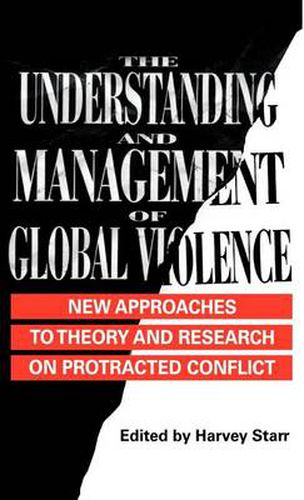Readings Newsletter
Become a Readings Member to make your shopping experience even easier.
Sign in or sign up for free!
You’re not far away from qualifying for FREE standard shipping within Australia
You’ve qualified for FREE standard shipping within Australia
The cart is loading…






This title is printed to order. This book may have been self-published. If so, we cannot guarantee the quality of the content. In the main most books will have gone through the editing process however some may not. We therefore suggest that you be aware of this before ordering this book. If in doubt check either the author or publisher’s details as we are unable to accept any returns unless they are faulty. Please contact us if you have any questions.
As scholars attempt to understand the global politics of the post-Cold War system, they must attend not only to changing structures of global order, but to the changing patterns of international, transnational, and domestic behaviour. Patterns of conflict have not been immune to the transformations involved in the crossing of historical systems. Thus, a study of conflict needs to focus on the investigation of conflict processes that cut across levels of analysis. The Understanding and Management of Global Violence approaches social conflict through the study of protracted conflict. As developed by Edward Azar, ‘protracted conflict’ is long-term, ongoing conflict which permeates all aspects of society. It is explicitly linked to two-level analyses, the analysis of crisis, the nature of identity groups, and enduring rivalries. These essays bring new thinking to the notion of protracted conflict, focusing on Israel, the Palestinians, and Lebanon, the Philippines and Nicaragua, Sri Lanka, India and Pakistan, and Northern Ireland.
$9.00 standard shipping within Australia
FREE standard shipping within Australia for orders over $100.00
Express & International shipping calculated at checkout
This title is printed to order. This book may have been self-published. If so, we cannot guarantee the quality of the content. In the main most books will have gone through the editing process however some may not. We therefore suggest that you be aware of this before ordering this book. If in doubt check either the author or publisher’s details as we are unable to accept any returns unless they are faulty. Please contact us if you have any questions.
As scholars attempt to understand the global politics of the post-Cold War system, they must attend not only to changing structures of global order, but to the changing patterns of international, transnational, and domestic behaviour. Patterns of conflict have not been immune to the transformations involved in the crossing of historical systems. Thus, a study of conflict needs to focus on the investigation of conflict processes that cut across levels of analysis. The Understanding and Management of Global Violence approaches social conflict through the study of protracted conflict. As developed by Edward Azar, ‘protracted conflict’ is long-term, ongoing conflict which permeates all aspects of society. It is explicitly linked to two-level analyses, the analysis of crisis, the nature of identity groups, and enduring rivalries. These essays bring new thinking to the notion of protracted conflict, focusing on Israel, the Palestinians, and Lebanon, the Philippines and Nicaragua, Sri Lanka, India and Pakistan, and Northern Ireland.